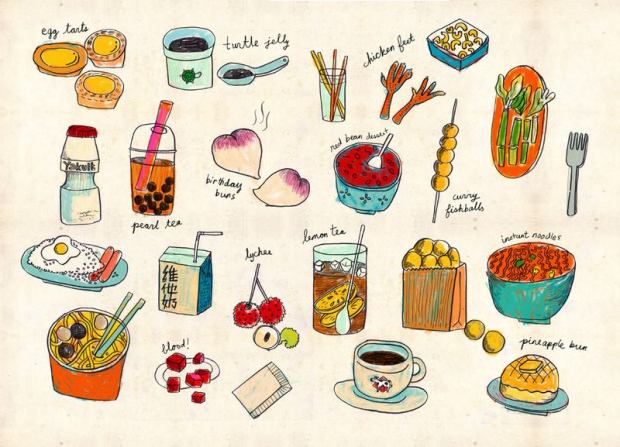Today is Tang Yuen Festival or Winter Solstice. This marks the start of winter.
In olden agrarian society of China, this festival is an even more important festival than CNY, especially in families with aged parents or grandparents.
Winter is the most trying and health sapping of time. Many weak old people will not survive through the winter solstice. So there is a gathering of whole families on that night as it may be the final time for a few old timers.
As winter has onset, all harvesting has been done. Using the newly cropped rice, tang yuen is made and the round shape signifies the complete circle of family members on that day as it was partaken.

That’s why there is also a saying that you are one year older after eating tang yuen. This is to promote the elders one more years in age to bring good karma to survive through the winter.
This festival is not religious, but cultural. Please remember each of your origin. Every civilized race has a history of much significance. Your location or citizenship can never erase your Chinese DNA.
~ unknown author
_______________________________
In the Western calendar, the Winter Solstice falls on December 21 or December 22 when the night is longest and the day is shortest in the northern hemisphere.
The Dongzhi festival is a tradition still celebrated by the Chinese that has a long history and certain customs.
- 2020 date: December 21
In 2020 it falls on 21st December as there’s a Yun Yuet this year. We had 2 lunar 4th month. If there is no Yun Yuet, then always 22nd December. - Chinese name: 冬至, Dōngzhì, literally: “the arrival of winter”.
Regional Customs
In past imperial eras, the Winter Solstice Festival was more important, but now it remains a relatively important festival only in Taiwan. In some regions of China, some families still gather together to eat a special meal, visit ancestral tombs, and worship their ancestors.

Northern China Customs
In northern China where it can get bitterly cold, the people lacked sufficient warm clothing and adequate heating, so they ate hot food and drank hot liquids to stay warm. People believed that when the days were short, there was insufficient Yang energy, and they tried to eat high Yang foods according to Chinese medicinal cuisine principals.
Historically on Dongzhi day, people went to the clan tombs to offer food and drink to their ancestor’s spirits, clean the tombs, and work to maintain them. Then they gathered in the evening afterwards for hot dumplings and drinks. Some northern Chinese still follow this tradition.
People ate fatty dumplings (饺子 jiǎozi /jyaoww-dzuh/) that contained meat and high Yang warming herbs such as ginger and garlic. This helped the people stave off illness and disease and stay warm. It helped them adapt to the onset of winter and buoyed their mood during the darkest days of the year.
Eating steaming hot dumplings with friends or family and eating food with special high yang herbs and spices is still a custom in northern China on the day of the winter solstice.

Southern China Customs
Some people in southern China and some Chinese in communities in Southeast Asia gather together to make and eat a meal of tangyuan (汤圆 Tāngyuán /tung-ywen/). Tangyuan symbolizes family unity and prosperity.
These are specially cooked balls of rice that might have a filling of bean paste or meat with sweet high yang herbs. These are usually pink or white colored. Tangyuan is often served in a bowl with a sweet soup or broth.
With their meal of tangyuan, they may also drink a mild rice wine that might contain cassia oil. Cassia is an herb that is high in yang and is one of China’s Top 10 Favorite Herbs and Spices.
Taiwanese Customs
For many Taiwanese and people of Taiwanese descent in other countries, the festival is still important. Families will go to the ancestral tombs and have meals of tangyuan, and they might offer tangyuan to the spirits at the tombs.
They also have a custom of offering nine-layer cakes to their ancestors. The cakes are made of rice flour and are shaped like animals such as chickens, ducks, tortoises, pigs, cows, and sheep.
According to traditional Chinese medical concepts, winter is the time of year it is important to rest, relax and nourish the body with high yang fatty foods.
Chinese follow the behavior of animals that hibernate during winter to rejuvenate and preserve their bodies. So they rest on the day if they can, eat foods containing ginger, and enjoy ginseng and similar high yang herbs that can restore and relax the nerves and alleviate stress.
History of the Dongzhi Festival
The Winter Solstice Festival was held as early as the Spring and Autumn Period. During the reign of the Han Dynasty (206 BC–220 AD), the holiday grew in importance. It was important during the Tang Dynasty and Song Dynasty when the emperors officially proscribed it as a day to worship and sacrifice to their god and to the ancestors. It has also been called the Changzhi Festival or Yashui.
Source: Gavin Van Hinsbergh
#RobertReview: 9 | 10
The winter solstice is particularly significant for me.
7 years ago on 22nd December 2013, my late wife, Brenda José, symbolically lived pass the longest night, and was able to listen to messages sent to her the next day, her last day, even when she was in a coma.
WHEN is The Coldest Day & The End of Winter? WHAT is the Meaning of Winter Solstice Dong Zhi 冬至 ?
Read about: Passing the “Winter Solstice Dark Night of the Soul” for Brenda José

Published: 21st December 2020
Updated: 21st December 2021.
Tinyurl link for this article: https://tinyurl.com/DongZhiMeaning
#DongZhi
#WinterSolstice
_________________________________

How to Cook Winter Solstice (“Dong Zhi”) Glutinous Rice Balls (“Tong Yuen”) by Robert Chaen
_________________________________
Read more about Chinese Festivals: https://robertchaen.com/category/chinese-festivals/
_________________________________


Leave a comment